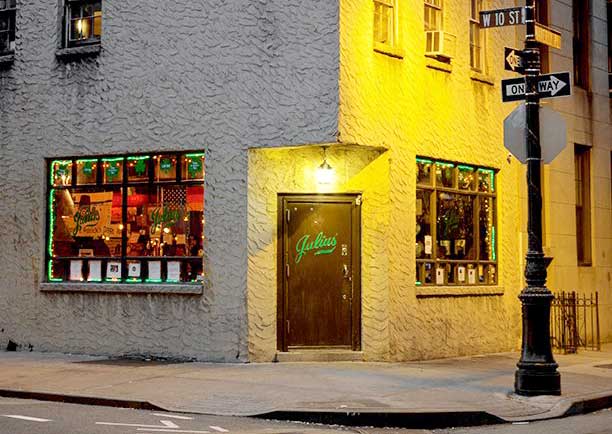
The storied bar now known as Julius has occupied the corner of Waverly Place and West 10th Street for nearly 160 years, serving as a bridge to nightlife for gay New Yorkers for decades.
The structure began as a grocery store, and then transformed into a tavern in 1864. During Prohibition, the bar became one of the community’s beloved speakeasies. It later became Julius in the 1930s, catering mostly to sports fans.
By the 1960s, Julius’ attracted a noticeable homosexual following, against management’s wishes. Afraid of gaining a gay hangout reputation, it cracked down on its own patrons.
New York culture did not celebrate diversity as openly as today’s society, and police regularly targeted raids at queer-friendly establishments. As a result, it wasn’t uncommon for gay patrons to be denied service or kicked out for visible queerness. Even liberal businesses owners asked gay men to stay away for fear of being shut down.
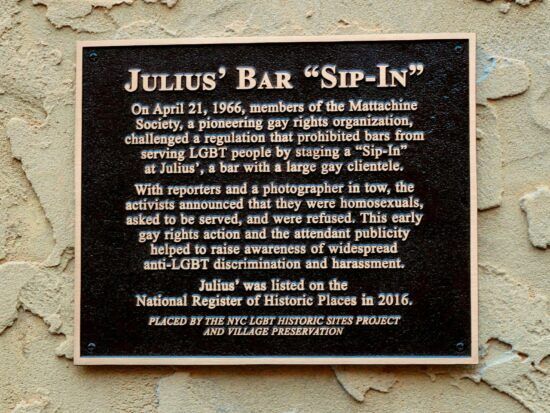
Later, members of the Mattachine Society Dick Leitsch, Craig Rodwell, and John Timmons chose Julius as the place to take their stand and expose this prejudice in nightlife. Undercover, the activists knew the bar had been raided in the past and would be wary of it happening again. Upon Leitsch announcing he was a homosexual, the bartender denied the group service. This blatant rejection was captured and printed in the New York Times and Village Voice.
Dubbed the “Sip-in,” what happened at Julius’ set off the dominos for the passing of the New York State Supreme Court ruling a year later. The court declared that simply being gay — even cruising or kissing — was not indecent behavior. If you’ve ever enjoyed a side of PDA with your drink in a New York bar, you have Julius’ to thank.
This monumental decree allowed gay bars to exist out in the open. It protected gay business owners from licensing discrimination and helped their patrons to finally feel safe. Three years later, Julius’ legacy would be overshadowed by the Stonewall Riots, which took place only a few feet away at neighboring Stonewall Inn.
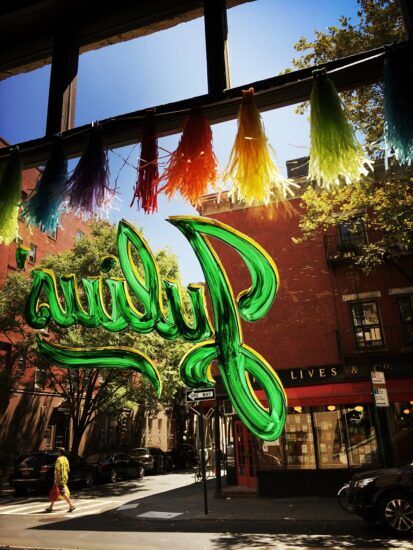
Today, newspaper articles on the restaurant’s wall reveal that Julius was once stomping grounds for some of history’s most famous queers, including Tennessee Williams, Truman Capote, and Rudolf Nureyev. It remains popular with an older crowd of New Yorkers who know better than to take safe spaces (and their gay freedoms) for granted. It also draws younger crowds curious to see what gay nightlife used to look like and socialize with some of the patrons there.
Helen Buford and her husband, Eugene, bought Julius in 2000. They preserved the original aesthetic of the place, giving you a temporary escape from reality every time you stop by for a drink. The long wooden bar shows the mark of time with carvings of patrons names through the years. The venue repurposed beer barrels as seating. Buford even kept the iconic wagon wheel light fixtures.
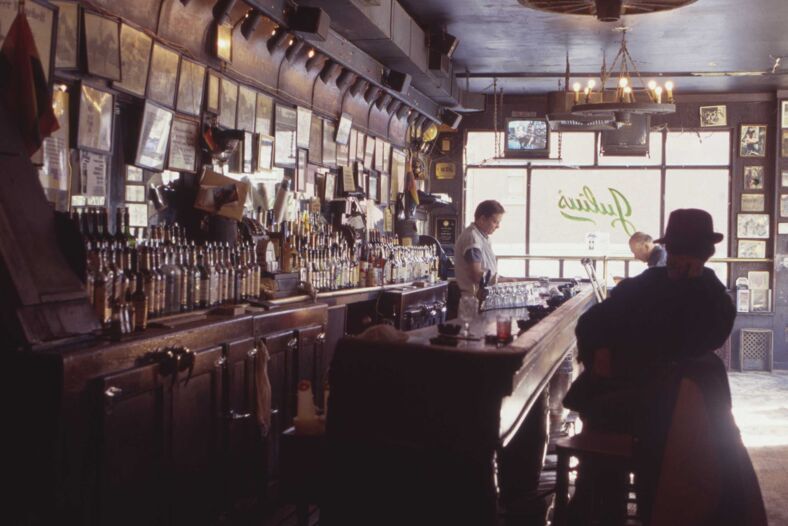
The walls are covered in memorabilia emphasizing its continued significance throughout the years. Though being a gay cultural landmark didn’t spare Julius’ from the effects of the pandemic, the owners have admitted to the press it has been a struggle to keep the lights on.
Buford acted quickly first to ensure her employees could feed themselves and pay their own bills. She launched a GoFundMe campaign titled “Julius’ Bar Emergency Fund,” raising over $35,000 distributed among 20 employees. Then, when Covid-19 proved that it wasn’t going away anytime soon, she launched a “Save Julius Bar Fund,” intending to raise $100,000 to prevent the venue’s permanent closure.
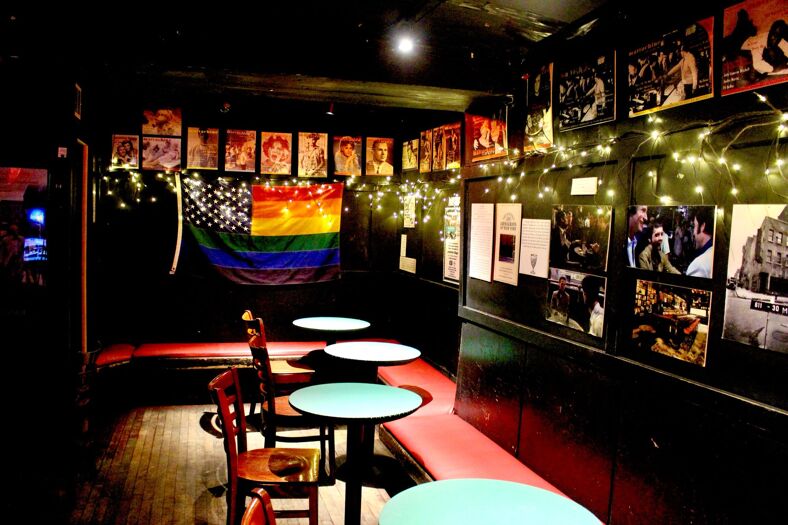
During this time, gay bars were closing across the country. New York Times published “Can Gay Bars, an Anchor of N.Y.C. Nightlife, Survive the Pandemic?” Unfortunately, the answer from many previously successful owners was no.
The community’s unwavering support ensured that Julius’ continued as a part of the future. The proudly gay bar remains triumphantly a West Village staple celebrating queerness and where you can enjoy a few drinks and comfort food with your friends while you’re at it.
RELATED: You haven’t seen drag until watching Rupaul’s Daya Betty perform at the Baltimore Eagle
Don't forget to share:




















